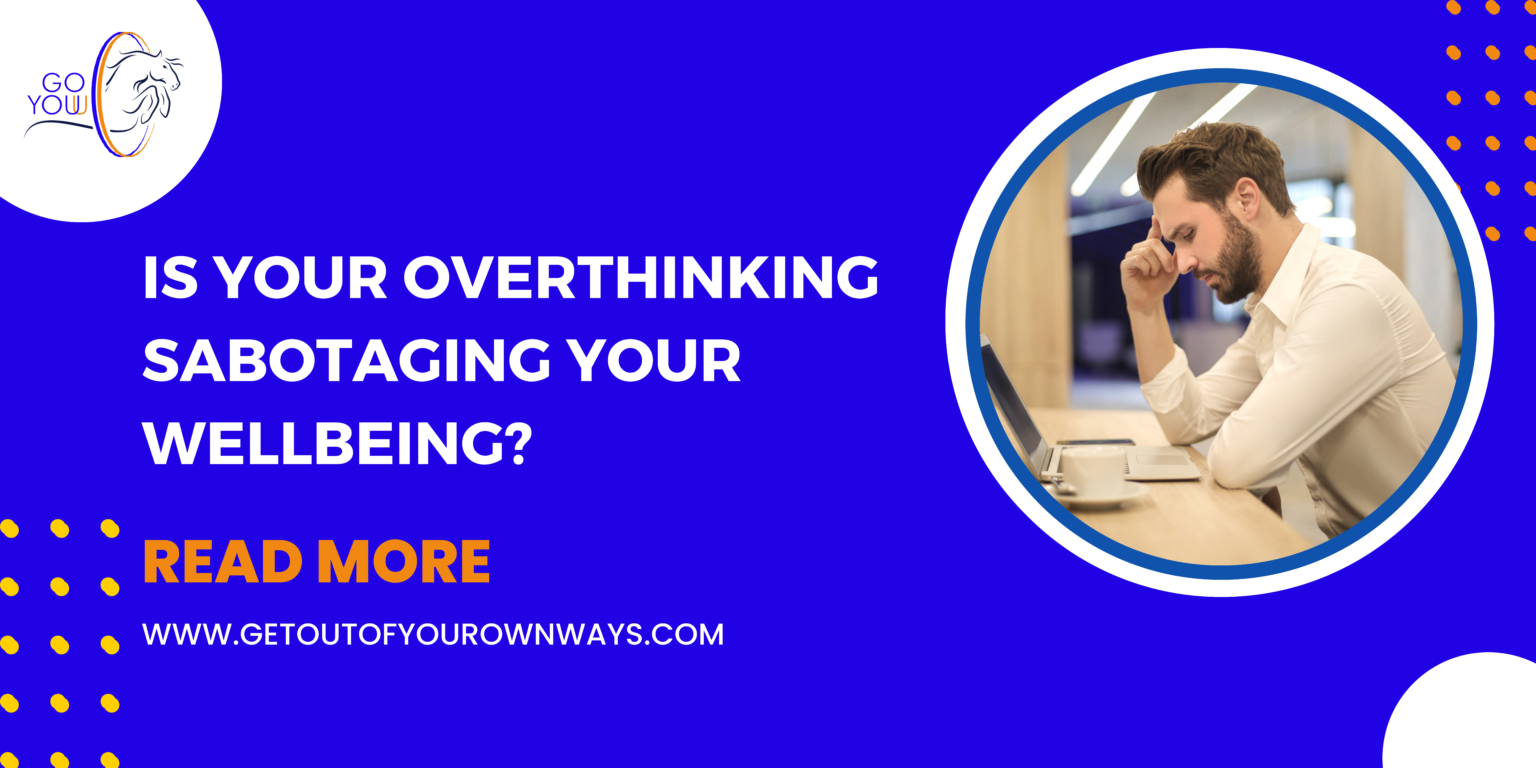Our human ability to think and reason is a unique and valuable attribute that distinguishes us from other species. Our capacity for complex thought and problem-solving has allowed us to develop language, technology, culture, and society. It has also enabled us to explore and understand the world around us, and to imagine and create new possibilities for ourselves and our future.
However, overthinking can be detrimental to our mental and physical health. Humans tend to overthink for a variety of reasons, such as anxiety, stress, a tendency towards perfectionism, a need for control, or a lack of confidence in decision-making.
Overthinking can also be exacerbated by environmental factors such as a high-pressure work or personal situation, or by negative thought patterns that can become habitual. When we dwell on negative thoughts and emotions, this can lead to a cycle of rumination that can be difficult to break.
We tend to overthink for a variety of reasons. Sometimes it’s because of anxiety, stress, or fear. Other times it’s because of a natural tendency to want to problem-solve or find a solution to a difficult situation.
Overthinking Can Be Harmful Because It Can Lead To:
1. Increased Anxiety
Overthinking can cause you to feel anxious or overwhelmed, which can lead to physical symptoms such as sweating, shaking, or difficulty breathing. This sense of anxiety can make it difficult to relax or focus on anything else.
2. Negative Self-Talk
Overthinking can cause you to focus on negative thoughts or self-talk, which can lead to a negative self-image or feelings of inadequacy.
3. Rumination
Overthinking can lead to a cycle of rumination, where you get stuck in negative thought patterns and are unable to break free from them.
4. Decision Paralysis
Overthinking can make it difficult for you to make decisions, as you may become overwhelmed by the options or possibilities. You may become trapped in a cycle of weighing up the pros and cons without ever arriving at a conclusion. It may cause you to second-guess your decisions and become indecisive, leading to missed opportunities and regrets.
5. Your Relationships
Overthinking can cause you to over analyse your interactions with others, leading to misunderstandings and unnecessary conflict.
6. Sleep Disturbances
Overthinking can cause you to have difficulty falling asleep or staying asleep, which can lead to fatigue, exhaustion and other negative health outcomes.
7. Not Present or Enjoying Life
Overthinking can interfere with our ability to enjoy the present moment and engage in positive activities. It can cause a lack of motivation and reduce our ability to concentrate on the task at hand. This can lead to a vicious cycle where individuals become more stressed and anxious, which in turn leads to more overthinking.
8. Your Self-Esteem:
Overthinking can cause you to focus on your flaws and mistakes, leading to negative self-talk and a lack of confidence.
Knowing how overthinking can negatively impact your life, you may be more motivated to take the steps below to reduce your over-thinking and bring some peace back into your daily life.
6 Practical Steps to Take to Reduce Overthinking
Overall, it is important to recognise when overthinking is becoming a problem and to take steps to address it. This may involve seeking support from a mental health professional or life coach, developing strategies to manage stress and anxiety, and learning to challenge negative thought patterns.
1. Mindfulness and Meditation
Being mindful helps in bringing attention to the present moment and helps in reducing the thoughts that make you anxious. Practicing meditation regularly helps in improving your focus and concentration, and helps in reducing the number of negative thoughts that bombard your mind.
2. Journaling
Write down your thoughts, feelings, and emotions in a journal. It helps in understanding what triggers your overthinking and how to handle it. Writing down your thoughts also helps in decluttering your mind, making it easier to think clearly.
3. Identify the Triggers
Observe the situations, people, and things that trigger your overthinking. It can be a specific event or a person. Identifying the triggers helps in being more mindful in those situations and helps in avoiding them if necessary.
4. Set a Time Limit
Set a time limit to think about a specific topic. For instance, you can set aside 10 minutes every day to think about a specific problem, and after the time limit is over, move on to something else. This way, you train your mind to focus on a specific task, rather than letting your thoughts wander.
5. Take Action
Overthinking can lead to inaction, which can cause further anxiety. Taking action towards resolving the problem can help in reducing overthinking. For example, if you are worried about a presentation, practice it in front of a mirror, or with a friend, to gain confidence.
6. Positive Self-Talk
Practice positive self-talk, which helps in calming your mind, and helps in focusing on the present moment. For example, when you notice yourself overthinking, remind yourself of a positive affirmation like, “I am capable of handling this situation.”
These steps can help you tackle overthinking. However, it is essential to note that overcoming overthinking is a gradual process and may require self-awareness and time. To prevent overthinking from harming our mental health, it is important to practice the steps above, seek support from friends and family, and consider talking to a mental health professional or engaging with a motivational life coach if the overthinking persists or becomes problematic for you to handle alone.







